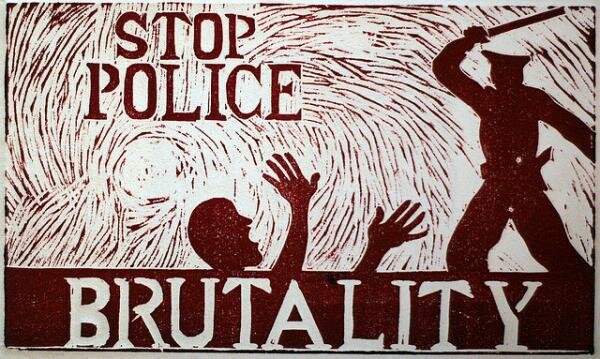Whither Human Rights?
Ahmadis has been persecuted, but rights abuses between 1965-1998 remain unaddressed. Is there any hope for Papua?
 Victims of alleged human rights violations in Indonesia, a country where human rights courts set up in 2000 have yet to convict a single case, are facing an uphill battle to bring perpetrators to justice.
Victims of alleged human rights violations in Indonesia, a country where human rights courts set up in 2000 have yet to convict a single case, are facing an uphill battle to bring perpetrators to justice.
Data from local NGO Commission for Missing Persons and Victims of Violence (Kontras) estimates more than one million people suffered rights abuses between 1965 and 1998 that took place largely under President Suharto’s military rule, which ended in 1998 with his forced resignation.
“We have an unusual situation in this country. You have all these human rights violations but as things stand, no-one has been found guilty in a human rights court,” said Haris Azhar, co-ordinator of Kontras.
In 2000 the Indonesian parliament created human rights courts to hear and rule on cases concerning gross violations of human rights. Over 12 years, 12 cases have come before the country’s four human rights courts, with no resulting convictions.
Enforced disappearances
In the tumultuous run-up to the country’s first steps towards democracy in 1998, university students challenging the military regime began disappearing.
Mugiyanto, who like many Indonesians goes by only one name, was detained in 1998.
“I was blindfolded and then held, tortured and interrogated for about four days by the military’s special forces. Then they handed me to the police, and they put me in a local prison for three months. I was then released when the leadership changed,” said Mugiyanto, who chairs the Indonesian Association of Families of the Disappeared (IKOHI).
In May 1998 President Suharto stepped down and was replaced by then Vice-President Bacharuddin Jusuf Habibie.
Mugiyanto said a total of 23 students disappeared, with nine (including him) later released. Thirteen remain missing, including Ucok Siahaan, who was a 22-year-old university student whose family still awaits news.
“He visited us several times [in 1998] and each time, he told us to stock up on food and supplies because the political situation in Jakarta was out of control,” said his father, 65-year-old Paian Siahaan. “In May he telephoned us and said not to go out of the house. He said if anything bad happened, just go to the mosque.”
His family has not heard from him since.
“We are angry with the government,” said Paian. “They always said they would help us establish what happened, but nothing has been resolved…
“We don’t want to sue anyone in a court of law,” said Paian. “We just want to know what happened to our son. If he is gone, we want to find his remains and lay them to rest in the family graveyard. We’re old now and we just want to live in peace, but until we know what happened to our son, we can’t do that.”
State brutality in Papua
In recent years activists have reported human rights abuses in the country’s remote Papuan region, where a separatist conflict has simmered for decades.
The resource-rich region (3,000km east of Jakarta and including the provinces of Papua and West Papua) has the lowest level of human development of Indonesia’s 33 provinces.
Penihas Lokbere from Jayapura, the capital of Papua Province, said he is one of 105 people arrested by the police in 2000 in the university town of Abepura, about 10km from Jayapura.
According to Human Rights Watch, a group of unidentified people attacked a police post in Abepura, killing two policemen and a security guard.
“The police wanted to retaliate,” said Lokbere. “They came to our dormitory while we were sleeping and arrested us. They didn’t ask any questions.”
Along with his fellow students, Lokbere was imprisoned for three days, where he said he was tortured, handcuffed and beaten with a metal crook. Until now, no one has been convicted.
A 2012 joint report of the International Centre for Transitional Justice (ITCJ) and the Jayapura-based Institute of Human Rights Studies and Advocacy (ELSHAM), recorded nearly 750 rights violations against Papuans from 1960-2012, including arbitrary arrest and detention, torture and killings.
Paul Mambrasar, a representative of ELSHAM said the actual number of violations may be much higher. “Many of the victims are not ready to speak about what happened. The provinces of Papua are militarized and people are worried if they give information, they will be terrorized by the military or the police.”
The Papua region has had decades-long separatist tension related to the stalled implementation of a special autonomy arrangement (granted in 2001); communities’ lack access to natural resource wealth such as gold, copper and timber; and there have been security crackdowns on political demonstrations.
Josef Roy Benedict, Amnesty International’s Indonesia campaigner based in London, said ongoing human rights violations in the region are in part due to a culture of impunity there.
“Police officers tend to be punished only for disciplinary offences, often in closed-door proceedings, while offences by the military are dealt with through the military court system, which lacks independence and impartiality,” said Benedict.
Persecution of Ahmadis
Data from the Jakarta-based NGO Setara Institute calculated nearly 130 violations of religious freedom nationwide from January to June 2012. Most happened in West Java against minority religious groups such as the Ahmadiyah, an Islamic sect that shares many Sunni beliefs with some 500,000 adherents nationwide.
In February 2011 a 22-year-old Ahmadi, Ahmad Masihuddin, was visiting a village outside Jakarta when an Islamic fundamentalist group, which does not recognize Ahmadis as Muslim, attacked Ahmadiyah followers in the village.

















